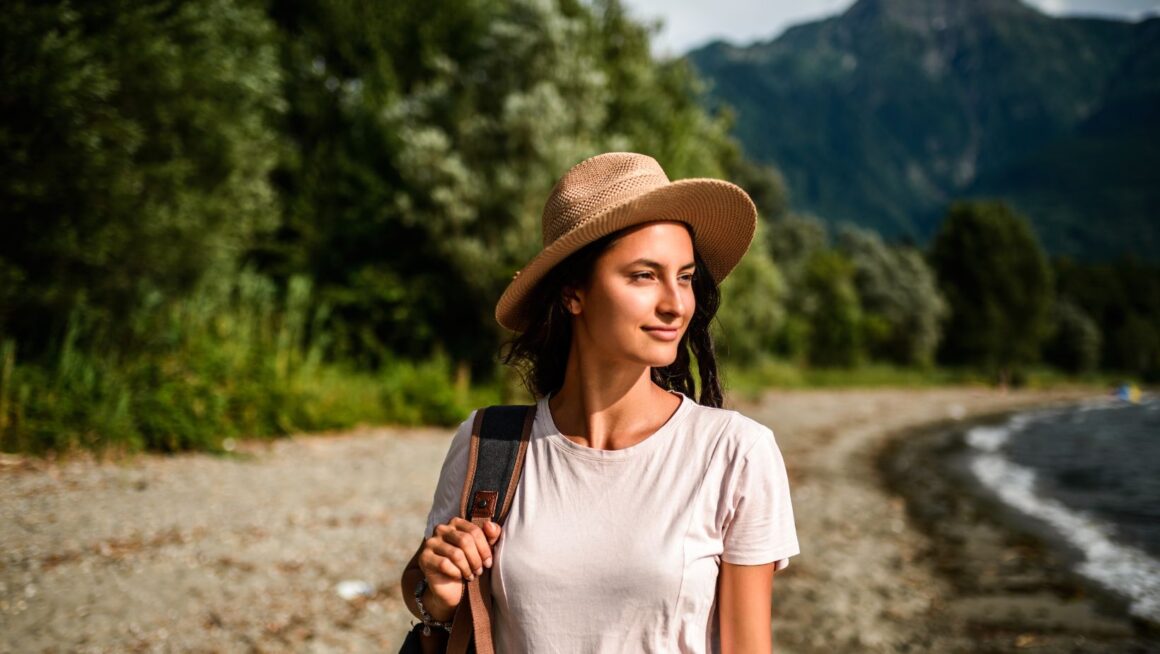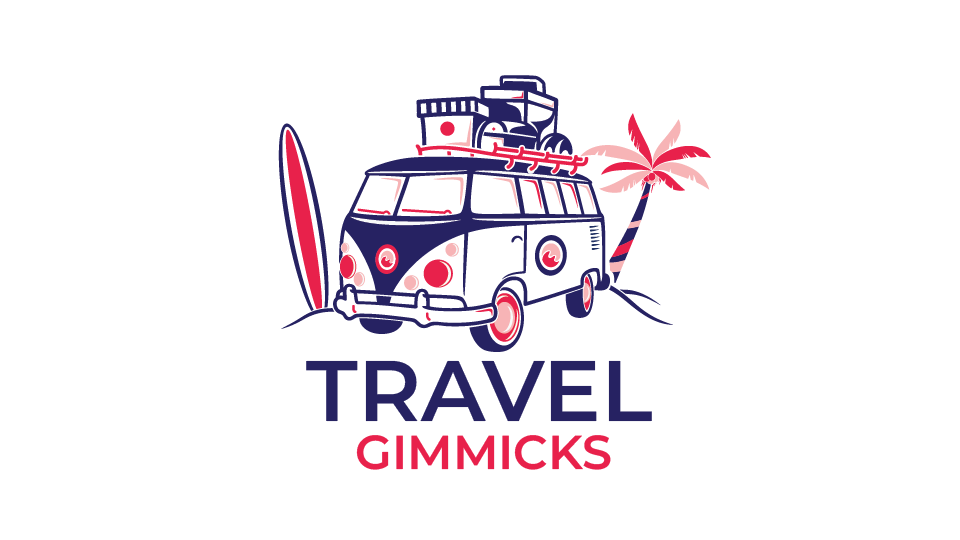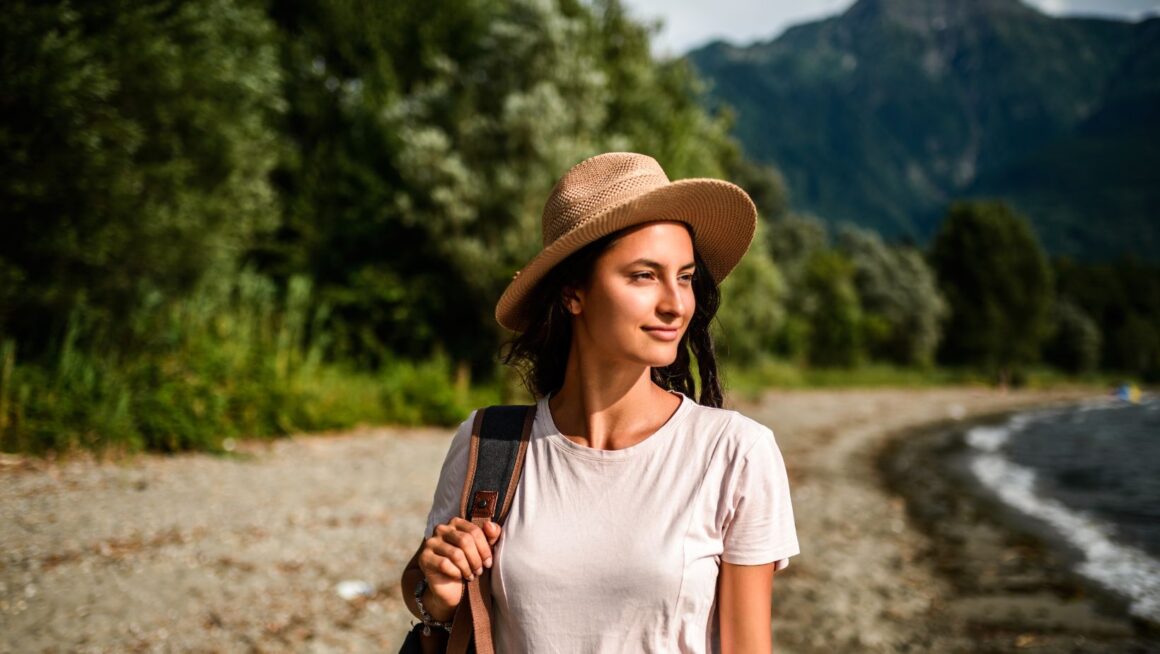Want to see the world on your own terms?
Solo travel is huge right now. Searches have increased by 74% in just the last two years. More people than ever are saying no to group travel packages and going it alone.
But, there is a catch…
When you’re travelling solo, you’re on your own. You’re in charge of everything. Your safety. Your accommodation. Your plans. With a little preparation and smart safety strategies, solo travel is just as safe as travelling with friends or family.
Let’s cover your essentials:
- How to choose safe accommodation
- Essential safety gear for solo travellers
- How to stay alert but not paranoid
- Digital security tips
- Emergency preparation
Why Solo Travel Safety Matters
Solo travel safety is important because it lets you relax and enjoy your trip. It’s not paranoia to think about safety when travelling on your own – it’s reality. 66% of women worry about personal safety when travelling solo. Successful solo travellers aren’t the ones who pretend nothing bad can happen, they’re the ones who plan ahead and stay alert.
Secure Transport Between Destinations
Travelling between cities is often where safety lapses happen. Long platforms, late arrivals, or confusion about the right bus or train can create avoidable risks. Plan your transfers early, choose daytime routes, and keep your belongings in sight at all times.
If you want a safer alternative, a pre-booked private transfer gives you a direct, predictable journey with a vetted driver — ideal for solo travellers who prefer controlled, low-risk travel between stops.
Safe Accommodation: Your Safe Space is Key
Your accommodation is your home away from home. Get this right and everything else is easier.
Whether you’re booking one of the finest hotels in the world or a budget hostel room, safety should be a top priority. Here’s what to consider:
Location matters. Check the neighbourhood before you book. Use Google Maps street view to see what it looks like on the ground. Read recent reviews specifically mentioning safety. A cheap room in a dodgy area is a false economy.
Ask for a second or third-floor room. Ground floor rooms are more accessible to burglars and thieves. Rooms above the fourth floor can be difficult for emergency services to access. A room on the second to fourth floor is optimal for security and safety.
Hotels are better than Airbnbs for solo travellers. Why? Hotels have 24-hour staff, security cameras, and controlled access. It’s that extra level of oversight that’s worth paying a bit more for when you’re on your own.
Safety Checklist When You Arrive
Walk into your room and take a quick security check:
- Test locks and deadbolts
- Check windows can be secured
- Look for a door peephole
- Note emergency exit locations
- Test the safe if there is one
It only takes five minutes but could save you from major issues later on.
Essential Safety Gear for Solo Travellers
Packing safety gear doesn’t have to be extreme. Just a few smart items will make a big difference.
Door security devices are a game-changer. Portable door locks or rubber door wedges are under $10 and add an extra security layer that hotel staff master keys can’t bypass. Many come with alarms that sound if someone tries to open your door.
Invest in anti-theft bags and backpacks. These have slash-proof materials and hidden zippers that make them near impossible to pickpocket.
Don’t skimp on a portable charger. A dead phone when you’re lost or in need of help is not only an inconvenience – it’s a safety hazard.
Staying Alert Without Being Paranoid
The big secret…
Safety-consciousness isn’t about being afraid. It’s about being aware. There’s a huge difference.
Trust your instincts. If something feels off, it probably is. Don’t ignore that uneasy feeling about a person or situation. Your instincts are working, listen to them.
Don’t advertise that you’re alone. Always ask for two room keys from the receptionist even if you’re solo. When someone at your hotel asks if you’re travelling alone, tell them you’re meeting up with friends later. A few white lies like these help deflect unwanted attention.
Don’t get sozzled alone. Having a few drinks when you’re by yourself is fine. Being wasted in an unfamiliar place by yourself is just asking for trouble.
Night-Time Safety Rules
Returning to your accommodation after dark requires a higher level of vigilance:
- Use official taxis or ride-share apps
- Have your room key out before you reach your door
- Check no one followed you down the corridor
- If you feel unsafe, return to reception and ask for an escort
Most hotels will happily escort solo guests to their rooms. There’s no shame in asking.

Digital Security Tips
Your phone and laptop have everything on them. Your bank accounts. Your bookings. Your contacts. If you lose access, it can ruin a trip very quickly.
Never use public Wi-Fi without a VPN. Public networks in hotels, cafes, airports, are hunting grounds for hackers and cybercriminals. A VPN encrypts your internet connection and costs less than $5 a month.
Backup your important documents. Take photos of your passport, ID, travel insurance, and all your booking confirmations. Email them to yourself and save them in cloud storage.
Manage your location sharing. Broadcasting your exact location in real-time on social media tells potential thieves your accommodation is unoccupied. Post your amazing travel photos after you’ve left.
Emergency Preparation: Hope for the Best, Plan for the Worst
You probably won’t need any of this. But if something does go wrong, you’ll be very glad you took the time to prepare.
Share your itinerary with someone back home that you trust. This includes your accommodation details, planned activities, and expected check-in times. Agree on a messaging system where you send them a daily message. If they don’t hear from you, they know something has happened.
Store emergency numbers on your phone:
- Local emergency services number
- Your country’s embassy or consulate
- Your accommodation’s phone number
- Your travel insurance emergency hotline
Programme these into your phone before you need them. In an emergency you won’t have time to be searching online.
Get proper travel insurance. It’s non-negotiable for solo travellers. Medical emergencies, theft, cancellations – insurance covers all the things that can turn a trip into a disaster.
Know some basic local phrases:
- “Help”
- “Police”
- “Hospital”
- “I need a doctor”
Knowing these four phrases in the local language could be life-saving in an emergency.
Building Your Confidence
Solo travel safety isn’t about trying to eliminate all risk. (That’s impossible.) It’s about reducing your risk to an acceptable level and being prepared to handle issues if they occur.
The more you travel solo, the better you get at assessing situations and trusting your instincts. Your first trip may be anxiety-inducing. Your fifth trip is routine.
Don’t be afraid to start small. Pick a safe destination with a good safety record and strong infrastructure. Build your skills and confidence over time.
Bringing it all together…
Solo travel is one of the most liberating and rewarding things you can do. The independence. The personal growth. The stories you’ll have to tell – it’s all worth it.
But that independence comes with responsibility. When you’re travelling alone, your safety is 100% in your own hands. That’s both liberating and a little daunting.
The solo travellers that have the best experiences are the ones that prepare the best. They research their destination. They choose safe accommodation. They pack essential safety gear. They stay alert. They protect their digital security. And they have emergency preparation plans.
You don’t have to be a security expert. You just need to be smart and intentional about your safety. Follow the tips in this guide and you will massively reduce your risk and be able to maximise your adventure.
Book that trip. Pack those bags. And go see the world on your own terms. Just do it wisely.
Safe travels.

